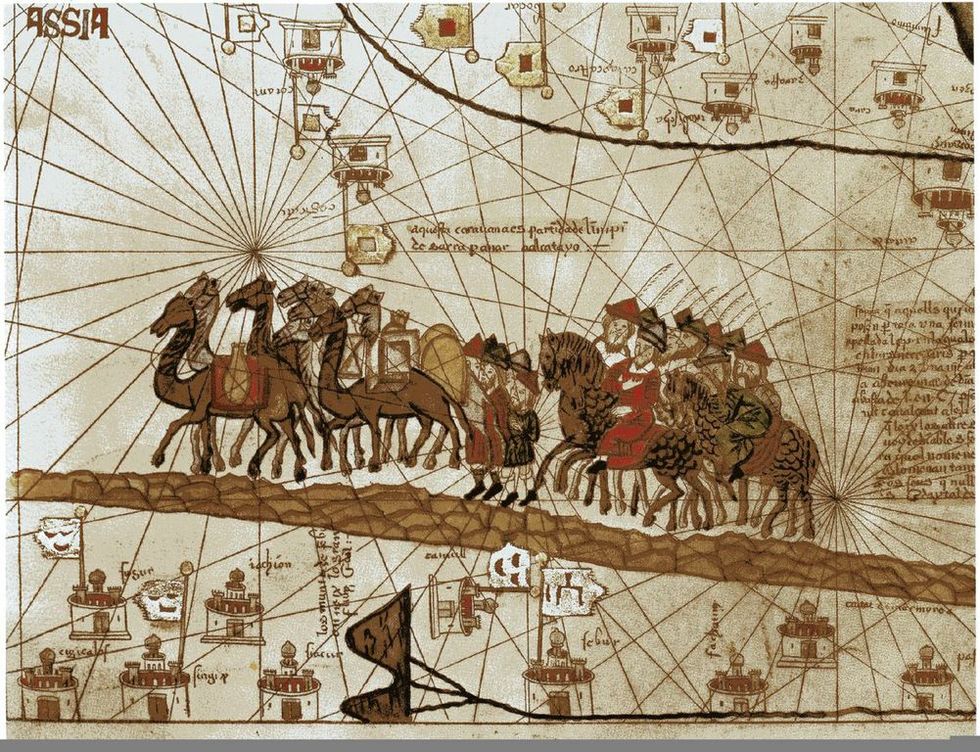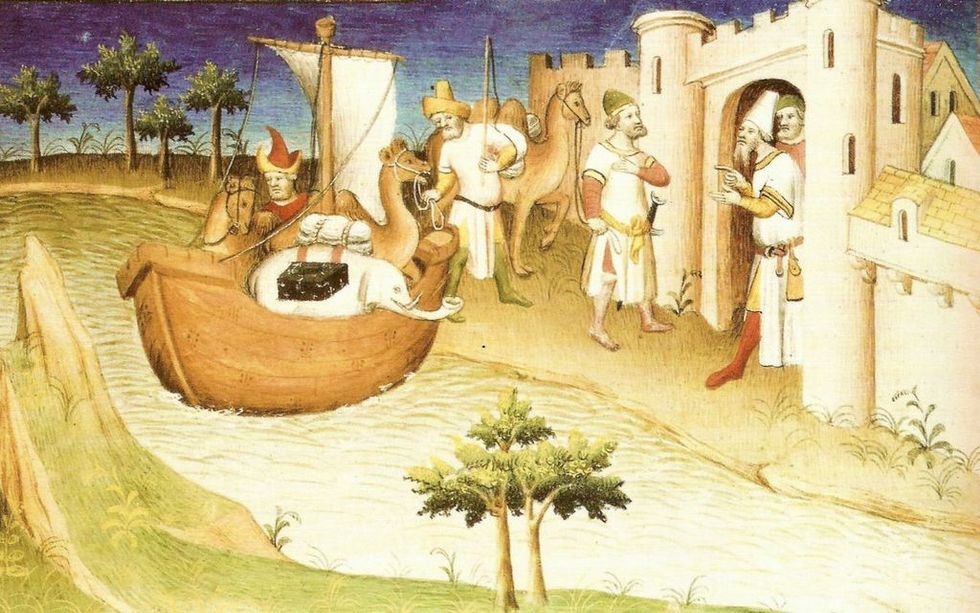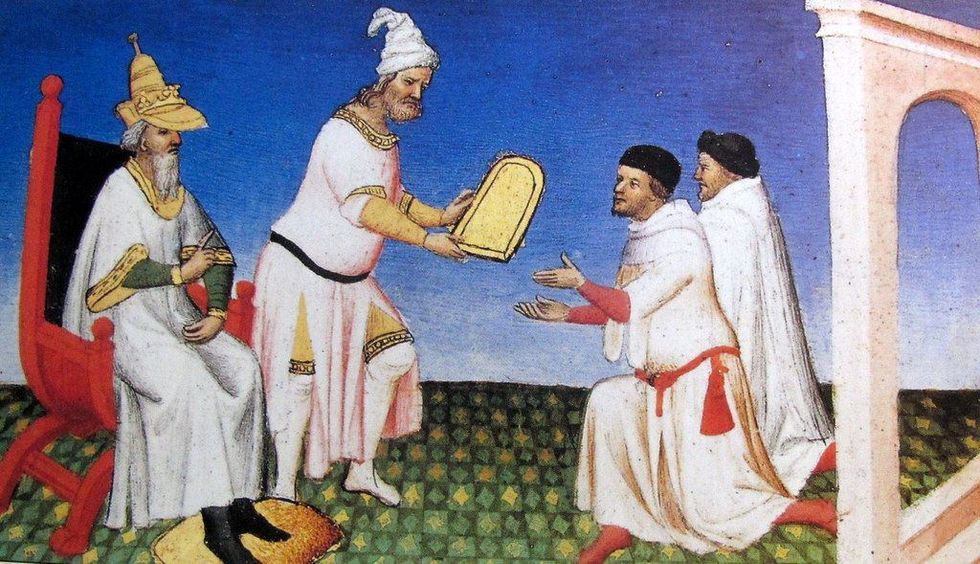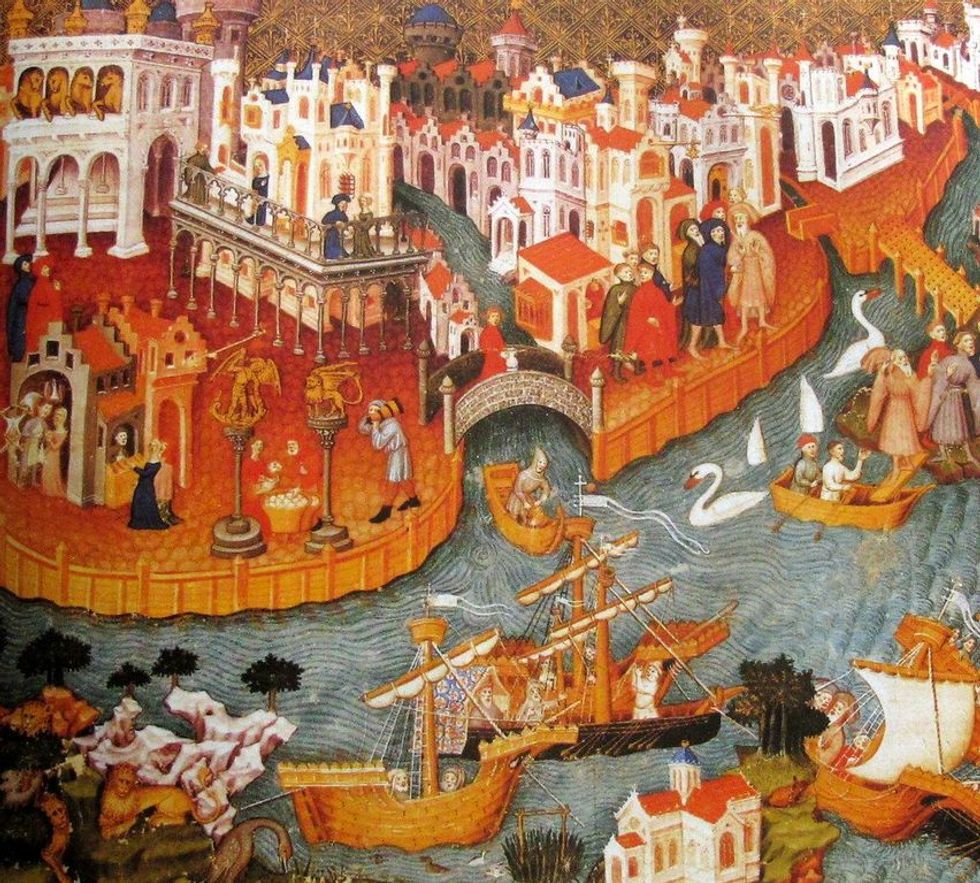Marco Polo—it's more than a game we play in the pool. It's the name of a thirteenth-century Venetian explorer who spent 24 years of his life traveling abroad, through the Middle East to India and as far as China. Throughout the centuries and even during his lifetime, his exotic tales of adventure have encountered all sorts of skepticism, with critics questioning both his credibility and his motives.
It's true, he may not have been the most humble or reliable figure. He probably exaggerated some numbers. It's clear that he didn't travel to all the places he wrote about. And of course he didn't retell his experiences without bias. In spite of all this, we can still glean a few tips from his uncommonly itinerant life.
1. Take your time

In the thirteenth century, you would be fortunate if you made the trip from Italy to Eastern Asia in three years. Marco Polo's father and uncle, who both traversed this route as merchants, spent at least a decade of their lives simply traveling from one place to another. They stayed a year in one place to exchange merchandise; war ended up detaining them three years in another city; and they accepted an envoy's invitation to a year-long journey to meet a complete stranger, Kublai Khan. Commissioned by this Great Khan to fetch a hundred Christian priests, they trekked back to Rome only to tarry there for two years, waiting for the chance to fulfill their task.
Even the Great Khan's relay system of couriers sprinting three miles at a time—which shortened normal travel by a factor of ten—can't compare to our instantaneous text messages. Do we even know what patience means anymore? Let's find the time every once in a while to slow down and appreciate a more reflective pace of life. It's okay not to know everything and have everything and be everywhere at once.
2. Tag along on your dad's business trips

Okay, maybe not. But that's how Marco Polo first embarked on his adventures. During the elder Polos' two-year sojourn in Europe, they decided to stop by Venice and pick up 15-year-old Marco. From then on, Marco Polo was one of the gang, traveling around the Orient in the service of the Great Khan. So if a friend or family member offers you the chance to try something new, seize it! Who knows what adventures await you?
3. Learn to tell captivating stories

Marco had already slipped into Kublai Khan's good graces by virtue of his father's reputation and his own extraordinary wisdom. (Bragging about himself here? Maybe.) But he took it one step further once he noticed that the Great Khan berated emissaries who couldn't give him any report of the countries they visited. With this in mind, Marco set out to become the best storyteller the Khan had ever known. His imaginative detail that we see sparkling throughout his book—sometimes bizarre, sometimes entirely unbelievable—helped him win over the Khan's favor. In your own life, what can you do to distinguish yourself from everybody else?
4. Make friends with important people

According to Marco Polo, Kublai Khan was the mightiest, wealthiest, most invincible individual who ever lived. That's definitely a stretch, but nevertheless, Marco led an enviable lifestyle during his 17 years as an expat in the imperial service. As one of the Great Khan's favorite emissaries, he enjoyed special privileges like an inscribed golden tablet which represented a free pass for food, lodging, guides...anything he would need as he traveled throughout the Mongol Empire. Of course, comfort isn't everything, but it never hurts to have powerful friends.
5. Make the most of your situation

Upon returning home for good, Marco Polo found himself caught up in a war between Venice and Genoa. What a way to be welcomed back...and then to be taken prisoner! But that's not the end of his story. While in prison, Marco befriended a fellow inmate who happened to write romance for a profession. To pass the time, Marco dictated his experiences to Rustichello so that other Europeans could read about the fascinating cultures thriving on the other side of the world. Marco Polo may not have expected to wind up in prison, but he still made use of his resources to make an impact in others' lives. How can you turn even the most disappointing circumstances into an opportunity to reach out and make a difference?




















